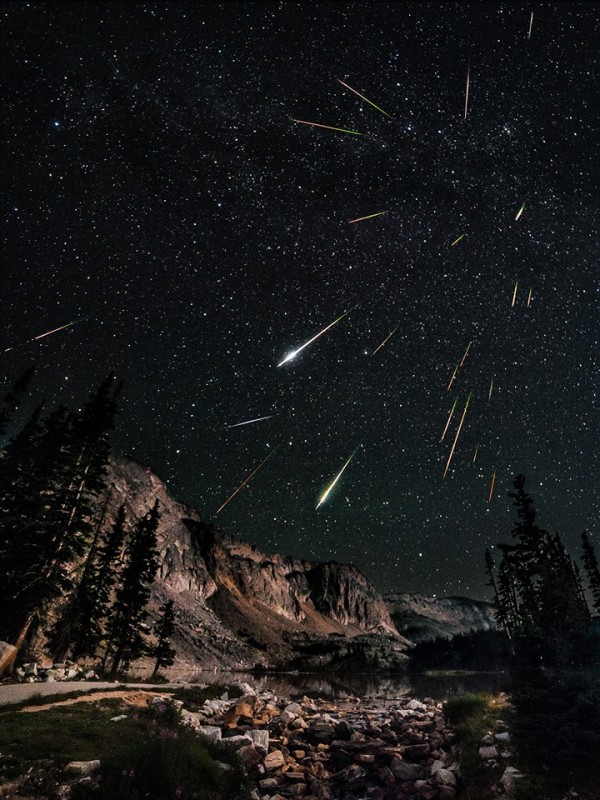“Men of genius are often dull and inert in society; as the blazing meteor, when it descends to earth, is only a stone.” -Henry Wadsworth Longfellow
And yet, not all meteors nor all meteor showers are created equal. Some showers are duds, with the meteors being infrequent, inconsistent, short-lived and dim. Hardly worth mentioning. On the other hand, meteor showers can be spectacular, with frequent events, consistent displays year-to-year, lasting many consecutive nights and with bright, luminous fireballs.
The Perseids, peaking tonight, are all four of these things, and we have its unique history to thank for it!
 Image credit: National Association for Amateur Radio, via http://www.arrl.org/news/catch-the-geminids.
Image credit: National Association for Amateur Radio, via http://www.arrl.org/news/catch-the-geminids.
Come find out what makes it so, and then go out and appreciate this unique, annual sight of the night sky!


The best meteor article yet!
Here's an email I sent to my homies this morning:
Hello all,
In the event anyone regrets their decision to not go meteor watching last night, here's how it went for me.
After pondering potential dark viewing sites, I finally took an old mat to the back of our community and just after midnight, reclined on a sidewalk with a view to the NE and minimal street lighting in my line of sight.
Within a few minutes, I was rewarded with an impressive streak of light that made my efforts worthwhile! 10 minutes later, two more in rapid succession, then a fourth about 15 minutes later. Five seemed to be a nice round number, but it was not to be and after another 15 minutes, I went home.
While I convinced myself I had seen other, fainter streaks, I believe the highly visible, and of course, much more spectacular displays that presented, would justify a half hour of post-midnight watching from even a bright, urban viewpoint.
???? of ?????
Here is what I don't understand in this situation:
Comet Swift-Tuttle has been documented all the way back to 69 BC. It is in a nice, stable 11:1 orbital resonance with Jupiter. If you know the last time it passed Earth, and the current position of Jupiter then you can deduce the location of Comet Swift-Tuttle. The physics of orbital mechanics is also pretty well ironed out at this point. Astrophysicists are routinely projecting orbital paths of objects in space dozens of orbits into the future.
Given all that, when Comet Swift-Tuttle last came by the Earth in 1992 it was 17 days from where it should have been. With an object moving 133,000 miles per hour, 17 days is a long way off. With the current awesomeness of telescopes, computers, an object 26 miles across with the Perseids serving as a yearly reminder of its existence, how was the Astrophysics community in 1991 so wrong?
"With an object moving 133,000 miles per hour, 17 days is a long way off."
Of course, it's a tiny fraction of the distance it travels. It does make a difference.
"how was the Astrophysics community in 1991 so wrong?"
How is this supposed to be answered?
"Duh, we astronomers are dumb"?
There isn't really any answering it. The question closes and is badly proposed.
Give it a go yourself. Work out where the next three orbits will pass us and we'll check the results. If you get it wrong, let us know how you got it so wrong.
(NOTE: not that it isn't a bit of a bugger that it was 17 days out, but the question is really weird and badly done)